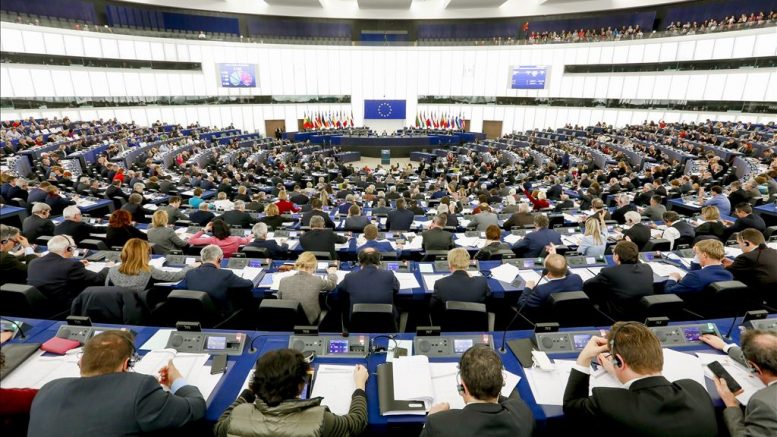The European Union is facing a funding shortfall of €1.8 billion in this year’s budget following the dramatic fall of the British pound since the Brexit referendum.
An EU official told Chief-Exec.com yesterday that the sharp fall in the value of the pound – had seriously impacted the 2016 EU budget because the UK made its monthly contributions to the EU in pounds, not euros.
Also, to calculate the UK’s contribution – the third largest after France and Germany – EU officials had counted on a fairly stable pound using last year’s exchange rate with the euro, precisely on “the last day of the year before the new budget” comes into play.
“The fees that the [EU] member states need to pay for 2016 won’t be enough to cover this gap”, the official said.
Petri Sarvamaa, MEP from Finland and vice-chair of the EU budget committee, told Chief-Exec.com today that not only this year’s budget would be affected by Brexit.
“For the coming years, if no solution is found Brexit will have an effect on everything [in the EU] and it will become a huge problem for the budget,” he said.
“We need to be creative otherwise the budget is going to collapse.”
This is not a situation that could have been anticipated and German MEP Jens Geier, vice-chair of the EU budget committee, said last week that the EU now had to deal with the problem.
Mr Geier said that, in an effort to make up for the difference, the governments in the European Council needed to decide between three different options.
“One is to ask the British government for more money. I don’t think that this would get a positive reception,” he said.
“Secondly, they can ask other member states to contribute more so that we can balance this artificial deficit created by the depreciation of the pound. This probably won’t be welcomed by the member states.
“[The] third possibility is what I would prefer. There’s a lot of money coming into the budget, for example from fines, and normally we’re not allowed to use this money. It’s only collected and then given back to the member states at a later stage. We could use these fines in order to cover this money.”
EU officials said the gap could widen further if the pound continued to fall after the UK government appeared to have set course for a hard Brexit.
However, Dutch MEP Paul Tang, a member of the EU Committee on Budgets, told Chief-Exec.com last night that exchange rate differences affected the EU budget all the time.
“For instance, in 2015, the EU benefited from an amount of over €1bn due to exchange rate changes and, therefore, overall member states’ contributions were lower.”
Mr Tang’s comment was supported by a spokesman for British MEP Richard Ashworth, also a member of the Budgets Committee, who said: “every year the European Commission presents an amending budget that re-jigs member state contributions based upon whether all the money was spent in the previous year and the relative size of their economies”.
“It seems likely that next year the Commission will present an amending budget that will make technical adjustments to member state contributions to deal with the shortfall”, the spokesman said.
By Katia Yezli




